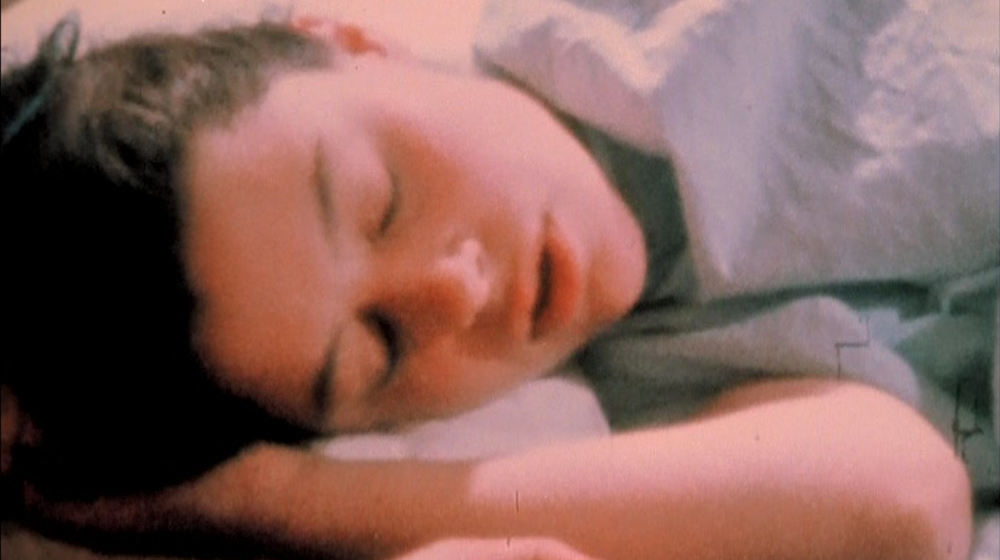Marjorie Keller died prematurely in 1994 at the age of 43, leaving over 25 films in 8 mm and 16 mm and a series of critical texts about the kind of cinema that interested her, such as a book about childhood in the work of Brakhage, Cocteau and Cornell, and incomplete research into experimental film by women, from pioneers like Germaine Dulac, Maya Deren and Carolee Schneemann to the young generation of her contemporaries, represented by Peggy Ahwesh, Su Friedrich and Leslie Thornton.
Misconception (1977), her longest and best-known film, documents the birth of her niece, using the small format of home movies, jagged editing and synchronized sound to express the pain and joy of the event, and the chasm between experience and memory. Daughters of Chaos (1980) takes footage of a wedding, and jumps backwards and forwards in time (adolescent girls in the process of becoming women, and a woman recalling her girlhood) to reflect the mysteries of growing up.
Misconception, Marjorie Keller, 1977, 43 min; Daughters of Chaos, Marjorie Keller, 1980, 20 min. [16 mm screening. Copy of Misconception from the Film-makers’ Co-op and copy of Daughters of Chaos, from Canyon Cinema.]


